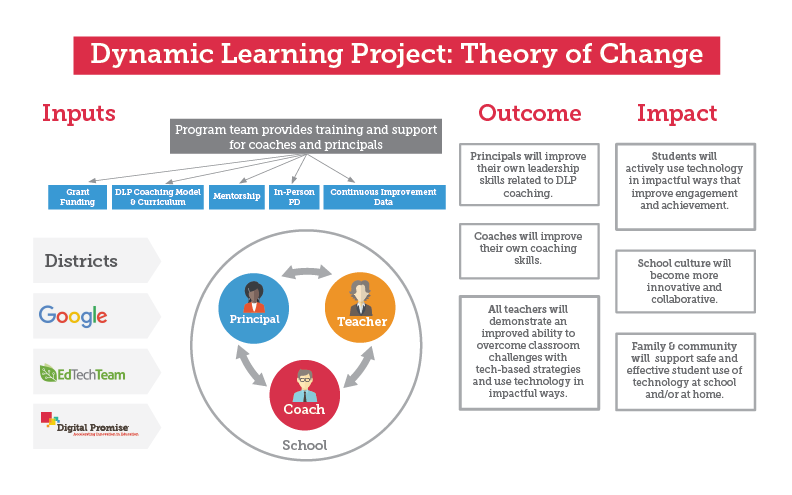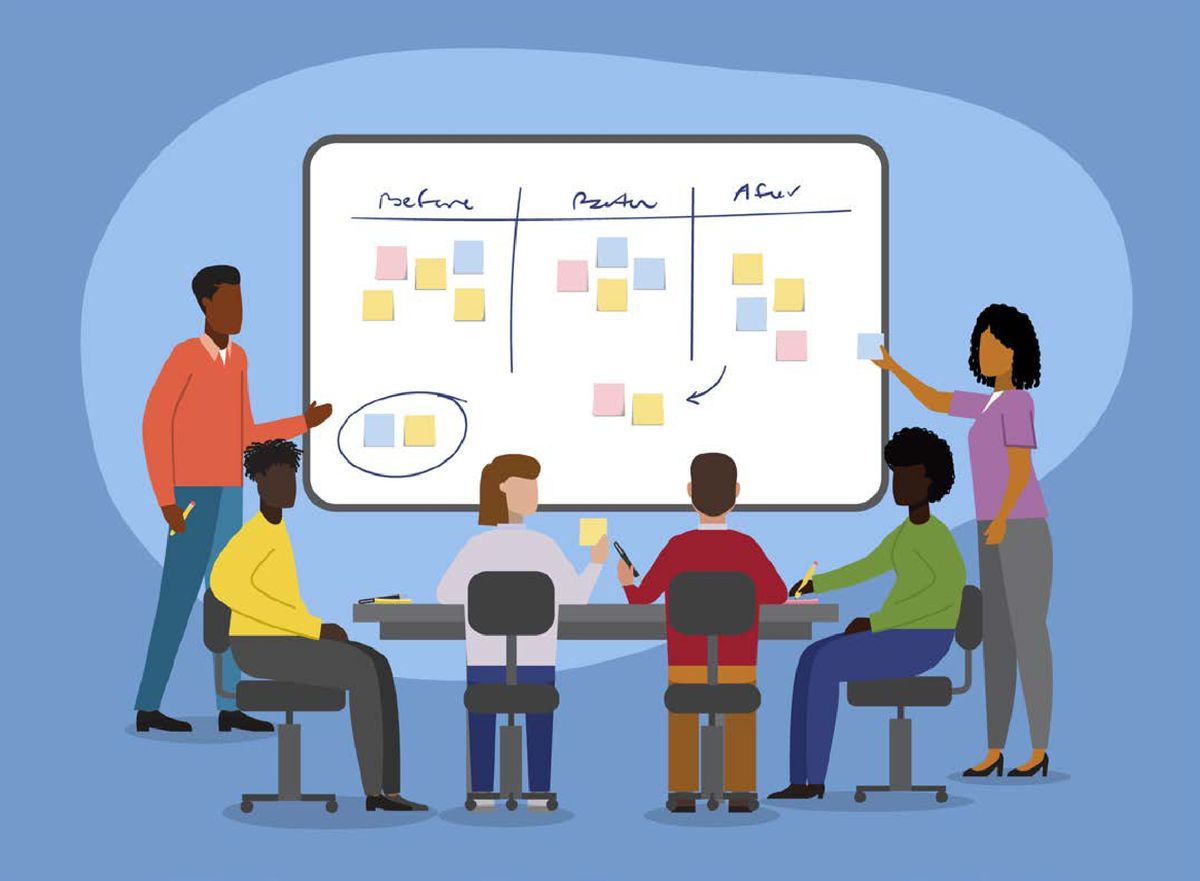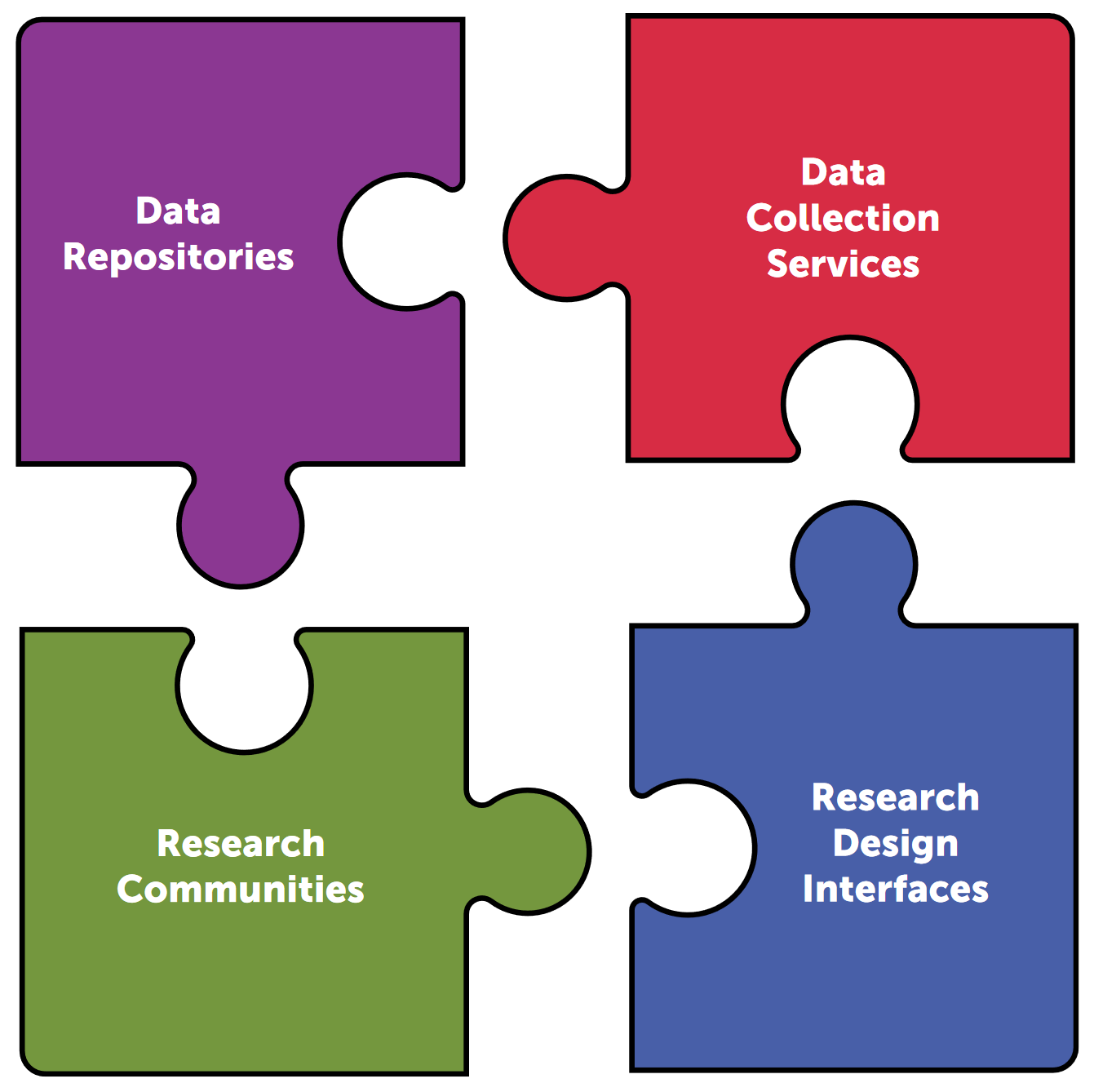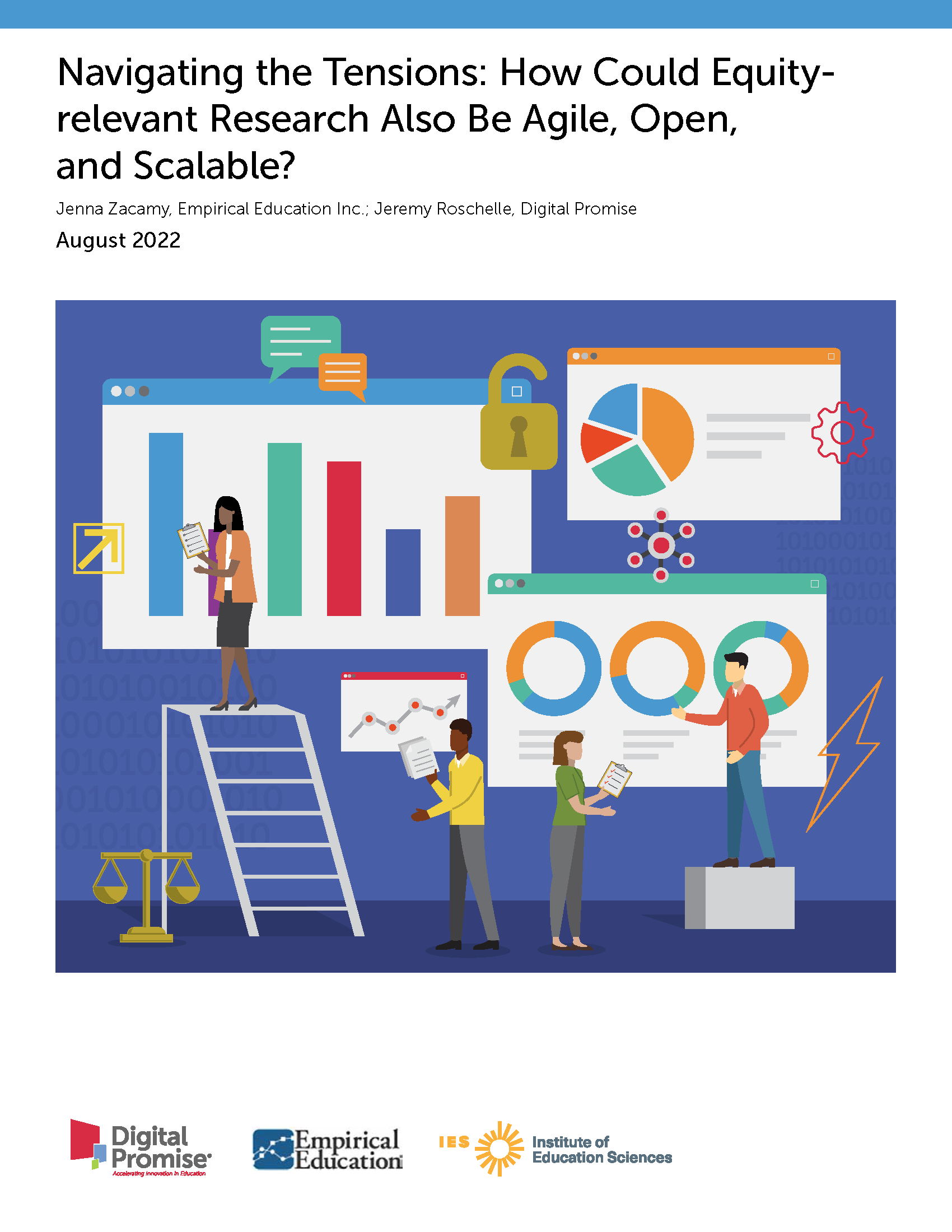
Empirical Education (Empirical) is collaborating with Digital Promise to evaluate the impact of the Dynamic Learning Project (DLP) on student achievement. The DLP provides school-based instructional technology coaches to participating districts to increase educational equity and impactful use of technology. Empirical is working with data from prior school years, allowing us to continue this work during this extraordinary time of school closures. We are conducting quasi-experiments in three school districts across the U.S. designed to provide evidence that will be useful to DLP stakeholders, including schools and districts considering using the DLP coaching model. Today, Empirical has released its design memo outlining its innovative approach to combining teacher-level and student-level outcomes through experimental and correlational methods.
Digital Promise— through funding and partnership with Google—launched the DLP in 2017 with more than 1,000 teachers in 50 schools across 18 districts in five states. The DLP expanded in the second year of implementation (2018-2019) with more than 100 schools reached across 23 districts in seven states. Digital Promise’s surveys of participating teachers have documented teachers’ belief in the DLP’s ability to improve instruction and increase impactful technology use (see Digital Promise’s extensive postings on the DLP). Our rapid cycle evaluations will work with data from the same cohorts, while adding district administrative data and data on technology use.
Empirical’s studies will establish valuable links between instructional coaching, technology use, and student achievement, all while helping to improve future iterations of the DLP coaching model. As described in our design memo, the study is guided by Digital Promise’s logic model. In this model, coaching is expected to affect an intermediate outcome, measured in Empirical’s research in terms of patterns of usage of edtech applications, as they implicate instructional practices. These patterns and practices are then expected to impact measurable student outcomes. The Empirical team will evaluate the impact of coaching on both the mediator (patterns and practices) and the student test outcomes. We will examine student-level outcomes by subgroup. The data are currently in the collection process. To view the final report, visit our Digital Promise page.





